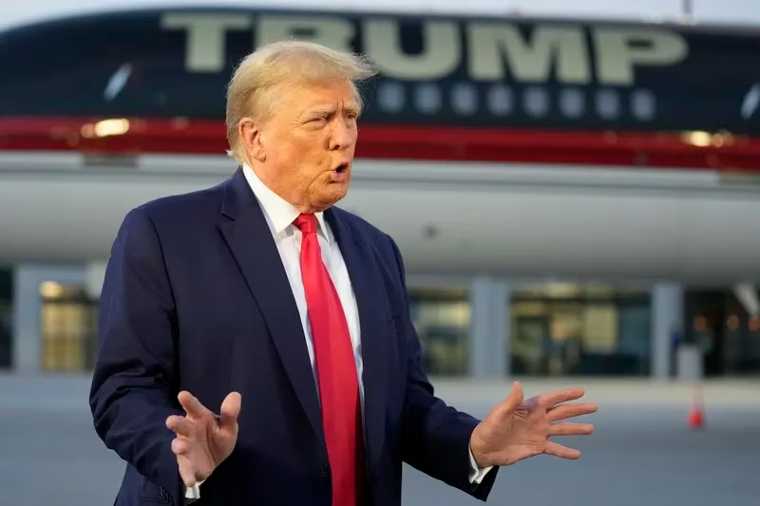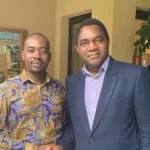 Concern for U.S. democracy amid deep national polarization has prompted the entities supporting 13 presidential libraries dating back to Herbert Hoover to call for a recommitment to the country’s bedrock principles, including the rule of law and respecting a diversity of beliefs.
Concern for U.S. democracy amid deep national polarization has prompted the entities supporting 13 presidential libraries dating back to Herbert Hoover to call for a recommitment to the country’s bedrock principles, including the rule of law and respecting a diversity of beliefs.
The statement released Thursday, the first time the libraries have joined to make such a public declaration, said Americans have a strong interest in supporting democratic movements and human rights around the world because “free societies elsewhere contribute to our own security and prosperity here at home.”
“But that interest,” it said, “is undermined when others see our own house in disarray.”
The joint message from presidential centers, foundations and institutes emphasized the need for compassion, tolerance and pluralism while urging Americans to respect democratic institutions and uphold secure and accessible elections.
The statement noted that “debate and disagreement” are central to democracy but also alluded to the coarsening of dialogue in the public arena during an era when officials and their families are receiving death threats.
“Civility and respect in political discourse, whether in an election year or otherwise, are essential,” it said.
Most of the living former presidents have been sparing in giving their public opinions about the state of the nation as polls show that large swaths of Republicans still believe the lies perpetuated by former President Donald Trump and his allies that the 2020 presidential election was stolen. Trump, a Republican, also has lashed out at the justice system as he faces indictments in four criminal cases, including two related to his efforts to overturn the results of his reelection loss to Joe Biden, a Democrat.
Thursday’s statement stopped short of calling out individuals, but it still marked one of the most substantive acknowledgments that people associated with the nation’s former presidents are worried about the country’s trajectory.
“I think there’s great concern about the state of our democracy at this time,” said Mark Updegrove, president and CEO of the LBJ Foundation, which supports the LBJ Presidential Library in Austin, Texas. “We don’t have to go much farther than January 6 to realize that we are in a perilous state.”
Efforts to suppress or weaken voter turnout are of special interest to the LBJ Foundation, Updegrove said, given that President Lyndon Johnson considered his signing of the Voting Rights Act his “proudest legislative accomplishment.”
The bipartisan statement was signed by the Hoover Presidential Foundation, the Roosevelt Institute, the Truman Library Institute, the John F. Kennedy Library Foundation, the LBJ Foundation, the Richard Nixon Foundation, the Gerald R. Ford Presidential Foundation, the Carter Center, the Ronald Reagan Presidential Foundation and Institute, the George & Barbara Bush Foundation, the Clinton Foundation, the George W. Bush Presidential Center and the Obama Foundation. Those organizations all support presidential libraries created under the Presidential Library Act of 1955, along with the Eisenhower Foundation.
The Eisenhower Foundation chose not to sign, and it said in a statement emailed to The Associated Press: “The Eisenhower Foundation has respectfully declined to sign this statement. It would be the first common statement that the presidential centers and foundations have ever issued as a group, but we have had no collective discussion about it, only an invitation to sign.”
The foundation said each presidential entity had its own programs related to democracy.
Continued next page
(98 VIEWS)

